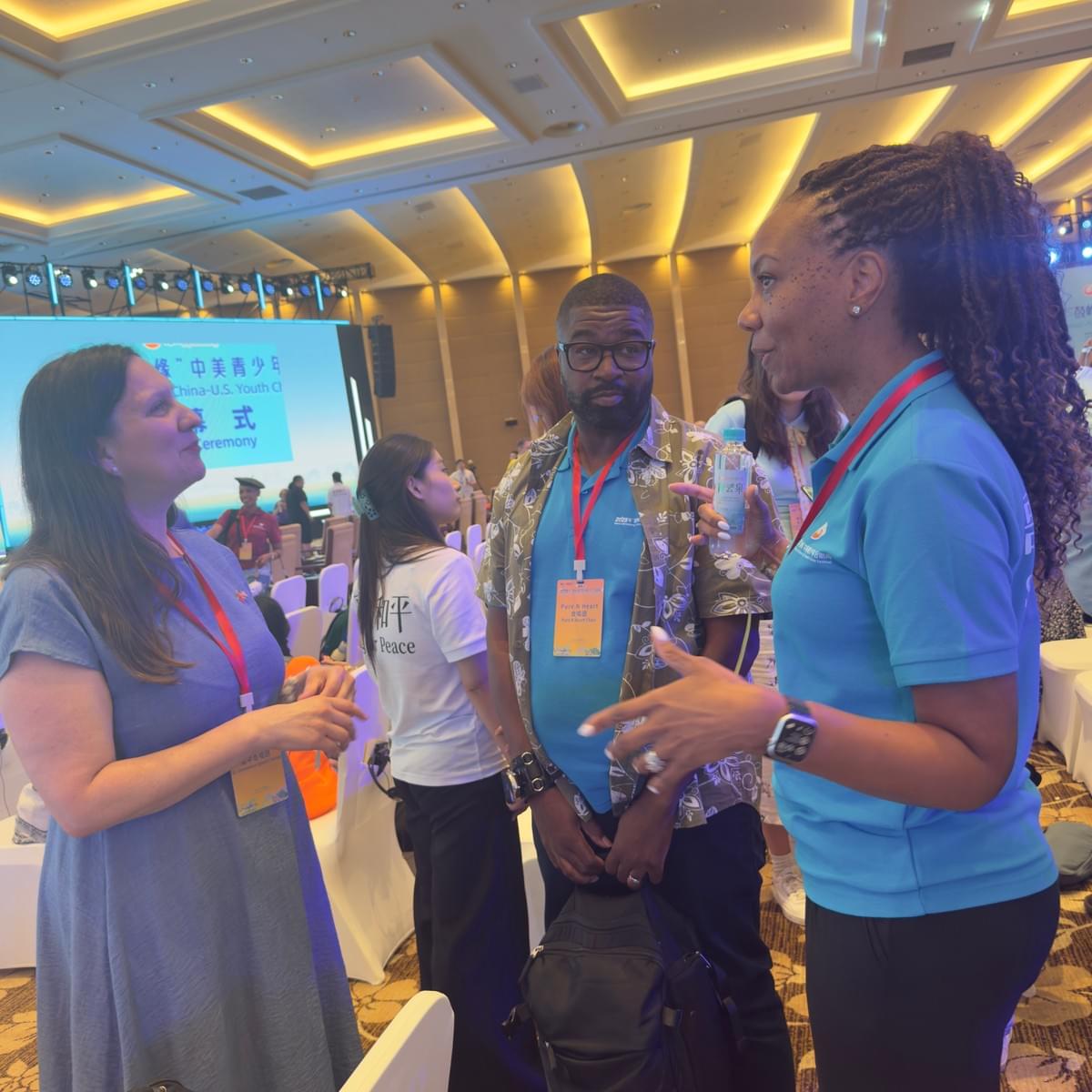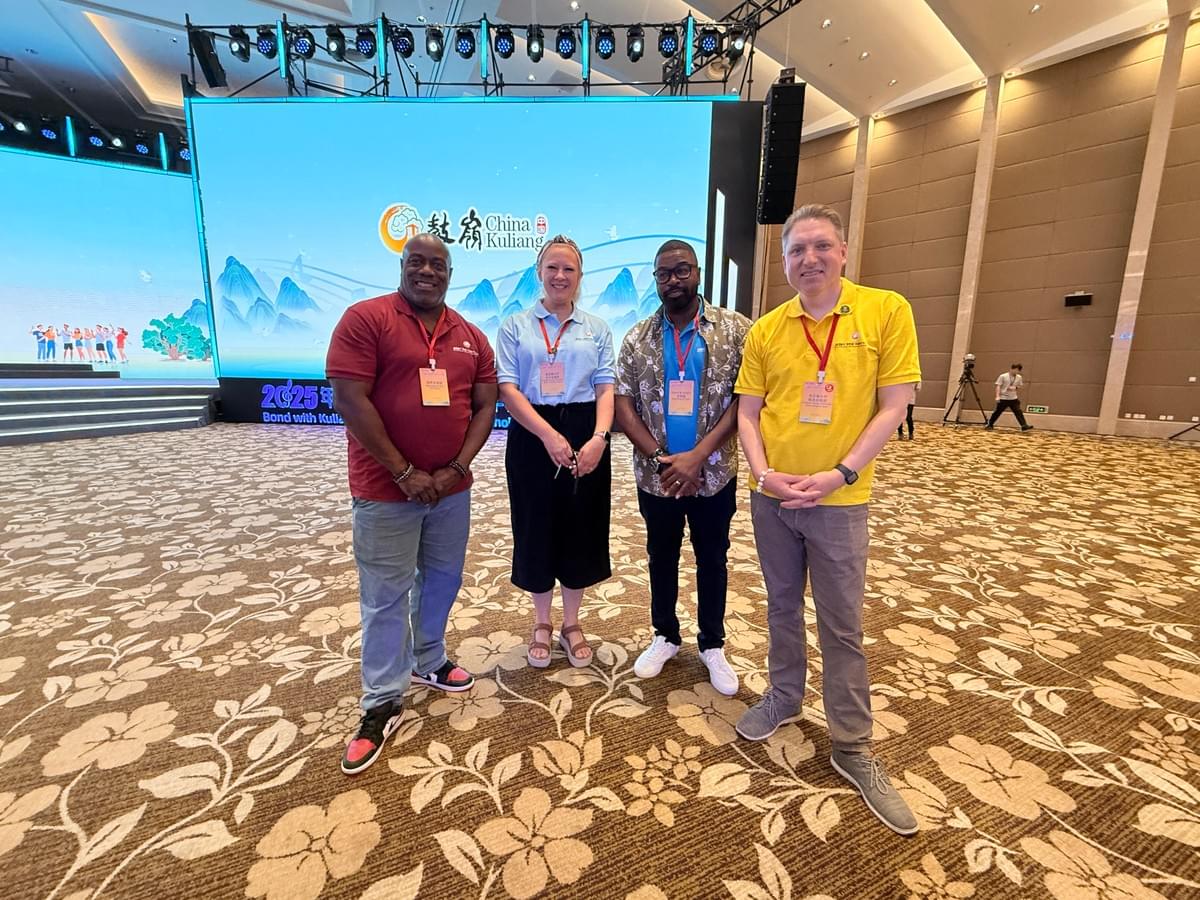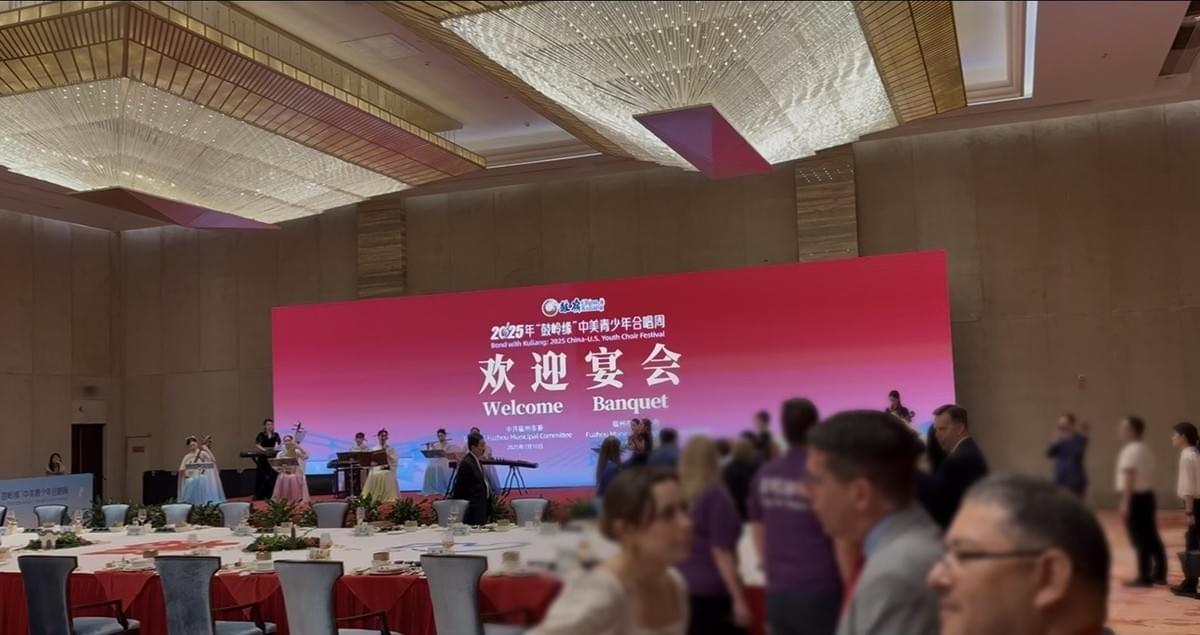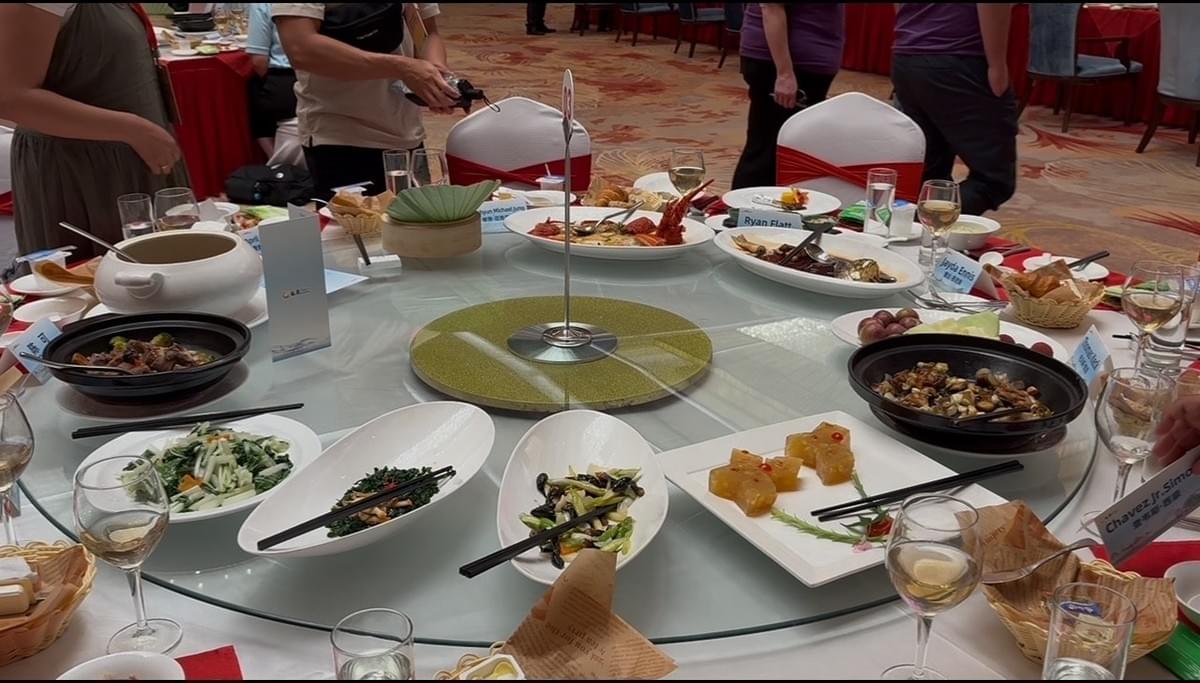Day 4 – July 10: Let the “Sing for Peace” Begin
Can a group of Black and Brown students from South Carolina help change the world—and move the needle, even slightly—toward global peace? After what we experienced today, the answer is not just “yes”… it’s absolutely.
Even though our bodies are still trying to figure out what day it is (hello jet lag—China is 12 hours ahead!), today gave us a wake-up call in all the best ways.
Breakfast was a highlight—rave reviews across the board. Imagine fluffy eggs, steamed bread, noodle soups, dumplings, rolls, fresh fruit… it was like a breakfast buffet that said, “Welcome to Asia—let us feed your soul.” Students who were skeptical yesterday were suddenly going back for seconds today. A win for the adventurous eaters.
We were warmly welcomed this morning by Ms. Kathy, one of the gracious organizers, and NaNa, our high-energy, always-smiling tour guide. NaNa makes every moment feel like an episode of a travel documentary—with humor, heart, and just enough trivia to keep us guessing.
Then came the big one: the Opening Ceremony.

The convention center didn’t just roll out a red carpet—it delivered a full cultural welcome inside the venue. Drummers, dancers, traditional Chinese fashion, and rhythmic energy filled the room the moment we entered. It was a celebration of history, unity, and hope.
The scale of the room itself was overwhelming—massive LED walls reaching toward the ceiling, enormous fonts across the screens, and “Sing for Peace” branding surrounding us. Hundreds of choirs from across China and the U.S. gathered in one space. For many of our students, this was the moment it became real: we are part of something global.
The ceremony opened with a powerful performance—a combined American and Chinese youth choir singing in both English and Mandarin. It was stunning and deeply moving.
I had the honor of being seated next to a Prime Minister and several international directors. They were gracious, kind, and as inspired as we were. Every seat in the room came with a commemorative Sing for Peace pin and water, and each of us was given in-ear devices that translated the Mandarin speeches into English in real time. The technology was incredible—word-for-word interpretation without delay. It brought everyone into the moment, together.

After the ceremony, we joined a joint rehearsal led by Dr. Criddle from Utah Valley. Fluent in Mandarin and masterful in conducting, he directed over 1,000 students with energy, clarity, and precision. Watching our students rise to the challenge, hold their own, and adjust in real-time was inspiring.
Two of our students—Damon and Jamarias—were invited to participate in a special Peace Painting activity in Kuliang, a historic mountain retreat just outside Fuzhou. In the early 20th century, many American families lived in Kuliang during the summers, forging deep friendships with local Chinese families. The area became a symbol of East-West connection, and that legacy continues today. Damon and Jamarias added their strokes to a mural that will eventually be presented to China’s First Lady. An incredible honor, and a moment none of us will forget.
Back at the hotel, lunch was another culinary journey. The noodle bar continues to be a hit—students are customizing bowls and surprising themselves with new favorites. Each dish seems to come with a story and a guessing game, but no one is complaining.
That afternoon, we returned for soundcheck—though it felt more like a full dress rehearsal. The stage lights, microphones, and the pressure of the room pushed the students to tighten up and perform with new intensity. I started seeing the group take initiative, correct each other, and lead—without needing me in the center of it all. That, for any director, is the dream.


After dinner, we joined a night tour of the Three Lanes and Seven Alleys Historic District, one of Fuzhou’s most iconic cultural sites. Lantern-lit streets, cobblestone alleys, artisan shops—it felt like stepping into a living museum. We visited the famous Heart Tree, a symbol of unity and emotional connection between cultures. Standing beneath it was a peaceful, grounding moment after such a full day.
During the tour, however, one of our group members became ill. Thankfully, our hosts responded quickly and with extraordinary care—from transportation and assistance to follow-up concern. It was a reminder that we are in good hands, and that even across oceans, compassion is a universal language.
Still, if I’m honest, I felt a quiet anxiety creeping in. Between the time difference, the nonstop schedule, unfamiliar foods, and the intense heat, I started wondering if these challenges might start picking us off one by one like a slow-moving suspense film. It’s a little funny writing it now—but in that moment, all I could think was: We have so many days left. Can we survive one without conflict or challenge?
And then I remembered—this is what our PPPP training we highlighted in a previous blog post is for:
This is what we’ve prepared for.
This is what builds leaders.
This is why we came.
Today was everything.
Music, culture, history, diplomacy, resilience—and growth.
Our students are not just witnessing history; they’re becoming part of it.
— Sent from 12 hours ahead, with full hearts, full schedules, and full faith we’re right where we need to be.
Professor Anderson
